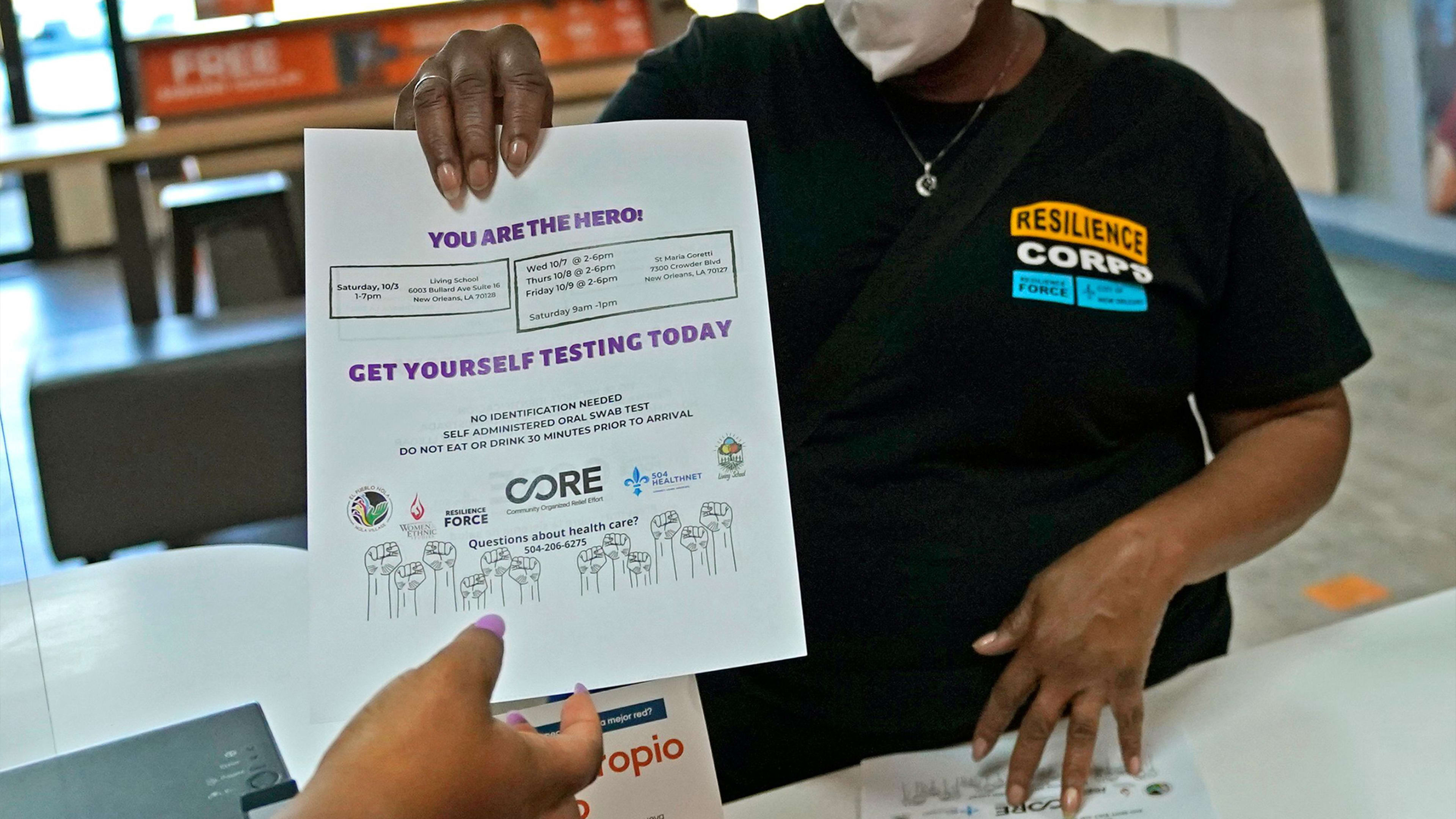America enters the new year with great hope for defeating the pandemic, but also in desperate need of extra investment to finish the job.
Although the new year began as last year ended, amid waves of political discord, a tsunami of COVID-19 cases, and overstretched hospitals, we can finally see the end of the pandemic. Now, policymakers, and healthcare workers, and others are grappling with how to quickly get relief and vaccines to communities and people who need them the most—and how to build trust where many people are wary of them.
An answer to these challenges is to activate a community-based health workforce: trained people who work door-to-door and face-to-face with their neighbors to connect residents to lifesaving healthcare and information. They are pandemic reinforcements that have barely been tapped, and we cannot wait a moment longer to bring more of them onto the battlefield.
The idea of mobilizing Americans for vital, ground-level community-health work is gaining support. President Joe Biden has a plan to create a national corps of coronavirus contact tracers. A group of U.S. senators, led by Kirsten Gillibrand and Michael Bennet, introduced the Health Force, Resilience Force, and Jobs to Fight COVID-19 Act to create a New-Deal-style workforce. The bill includes funding for state, local, territorial, and tribal governments to hire workers for contact tracing, health education, coronavirus testing, medicine, food deliveries and assistance for those who are sick or in quarantine, and supporting vaccine administration.
At the federal level, these corps are still ideas, but in some cities, they already exist and are saving lives right now.
The New Orleans Resilience Corps, a nonprofit program, is already hiring and training local residents to help the city withstand COVID-19 and natural disasters. Last year, the corps’s members focused on coordinating with contract tracers, doing door-to-door canvassing and wellness checks, delivering food and other necessities, and connecting residents with city and state services.
The Resilience Corps works with the New Orleans Health Department and other city and state agencies as partners to help address racial and health inequities. Corps members, many of whom lost jobs in the struggling service and tourism economy, are recruited from—and do their vital work in—Black and Latino neighborhoods that have been hit disproportionately hard by weather events and the pandemic. Corps members use their deep neighborhood ties to guide neighbors through contact tracing and COVID-19 testing efforts, helping the city of New Orleans sustain a COVID-19 positivity rating below 5% for 7 of the last 10 months.
This year, members of the Resilience Corps will be critical in the effort to overcome hesitancy about the COVID-19 vaccine. They will be going door-to-door to convince residents in every part of the city to “finish the fight”—and take the vaccine when it’s their turn. The Resilience Corps is canvassing as if the vaccine were a grassroots candidate for office, engaging, persuading, and reminding people to get their shot.
This is vital grassroots work, but it is not low-wage work. New Orleans Corps members earn a living wage—starting at $12 an hour, with a path to $18 an hour or more for those who continue working in the field—and receive extensive training and education that will help them enter professional careers in related sectors once their nine-month rotations end.
New Orleans is not alone; other cities, such as Baltimore, are running similar programs. The Baltimore Health Corps has helped vulnerable city residents, including the elderly and single parents, with resources such as housing, medical care, and internet service during the pandemic. The impact in New Orleans and Baltimore can be replicated in communities across the country and help bridge what we call the “resilience divide.” Disasters, whether hurricanes, wildfires, or disease outbreaks, exacerbate inequities and drive economic, social, and racial inequality.
Ultimately, the work of these corps is animated by the knowledge that resilience is not a one-time need. When this pandemic is finally over, other crises, including climate change’s destructive weather events, await. Everyone remembers Hurricane Katrina, but few know Cristobal, Marco, Laura, Delta, and Zeta—the five named storms that hit Louisiana just in 2020, a record. Last year also saw unprecedented fires in the American West and colossal floods in the Midwest. While COVID-19 is the immediate calamity, the Resilience Corps will play a key role in disaster-related work too—sharing information, ensuring safe and orderly evacuations, and distributing food, water, and personal protective equipment.
These corps are bright spots in a bleak time. They represent ambitious attempts to build our national resilience one home and neighborhood at a time. President Joe Biden and Vice President Kamala Harris have made it clear that the new administration’s immediate focus will be on getting the pandemic under control so the nation and its battered economy can begin to grow back. Their teams—and the rest of America—need only look to New Orleans and Baltimore for models that can be scaled.
LaToya Cantrell is the mayor of New Orleans. Raj Shah is the president of the Rockefeller Foundation. Saket Soni is the executive director of Resilience Force.
Recognize your company's culture of innovation by applying to this year's Best Workplaces for Innovators Awards before the extended deadline, April 12.
